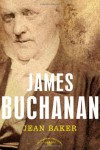Seriously, Read a Book!
Thoughts on books, often interpreted through the high-brow prism of cartoon (read: Archer) references. Wait! I had something for this...
Currently reading
A Death in Belmont

Sebastian Junger is a great non-fiction writer in any circumstance, but he's especially well-suited to cover the Boston Strangler story. Why? Well, because the man who was in all likelihood the culprit of said stranglings was also working on an addition to his family's house in 1962 in Belmont, Massachusetts. At the very least, the fact that his mother, Ellen, was home alone with this man on multiple occasions is a creepy anecdote.
Of course, Junger's family connection to the case serves only as a starting point for an examination of a larger story (or stories). The first is of the murder of Bessie Goldberg in Belmont in 1963, a murder that closely fit the pattern of "the strangler," but for which (through an interesting series of events- read the book for these) an Oxford, Mississippi man, Roy Smith, was ultimately convicted. While there's no hard and fast conclusion that exonerates or condemns Smith, his story is, nevertheless, inextricably entwined with a closed-circuit and fallible legal system.
However, it wasn't Roy Smith who was working in the Junger residence circa 1962, that man was Al DeSalvo. The DeSalvo story (which Junger covers reasonably well) is one you can read in any number of volumes on "the Boston Strangler," as he confessed to those murders. What Junger examines, though, is his potential involvement in the Belmont murder for which Smith was convicted.
As far as true crime goes, this was a reasonably good book. While Junger undoubtedly points out some "miscarriages of justice" and certainly had me on board with his conclusion, his reasoning, at times, seemed flawed. In furthering his own case, Junger uses some of the same tautological arguments of innocent men acting innocent etc. that can result in false convictions; though, my take on that is heavily influenced by my recent reading of Mistakes Were Made (but not be me).
Junger did a great piece for Vanity Fair, "Alone with the Strangler," that covers some of the more interesting pieces of the book- so if this sounds more six pages worth of interesting to you than 288, go check that out.
 2
2
 3
3













